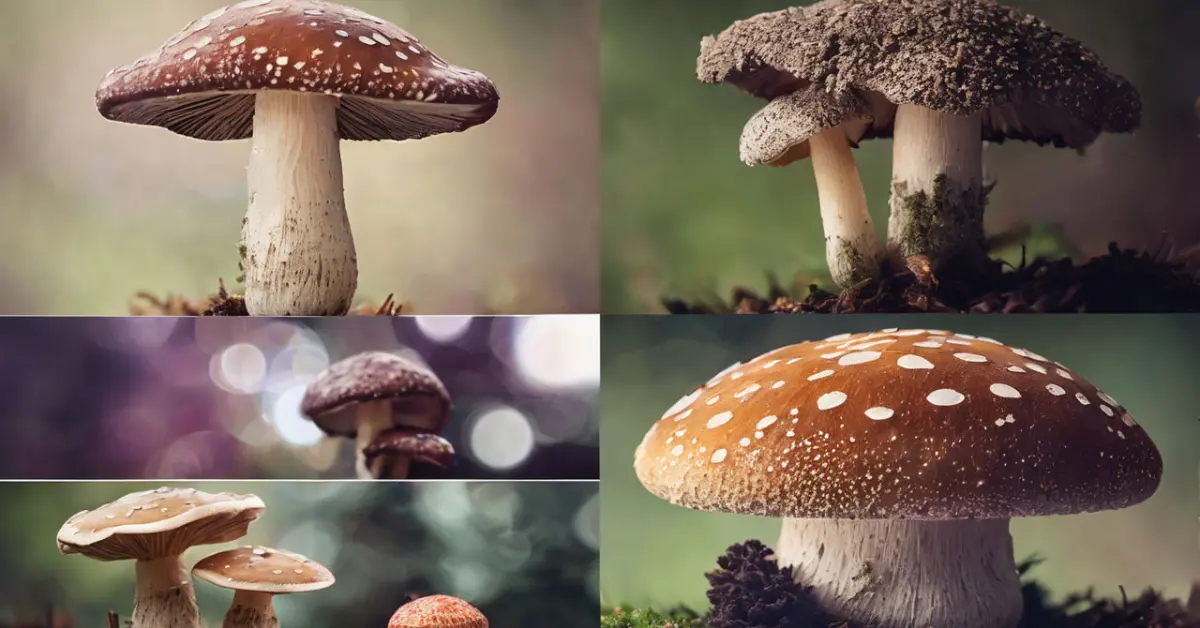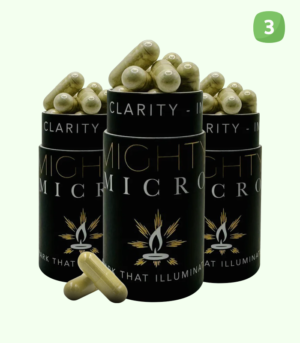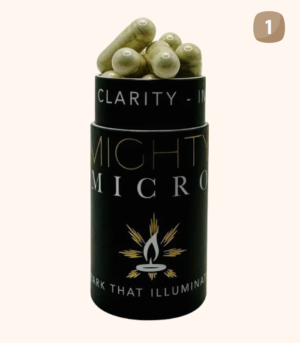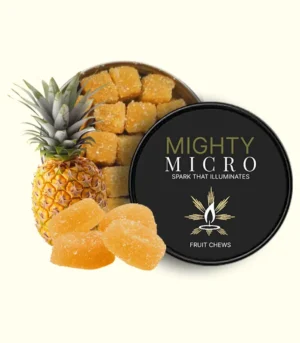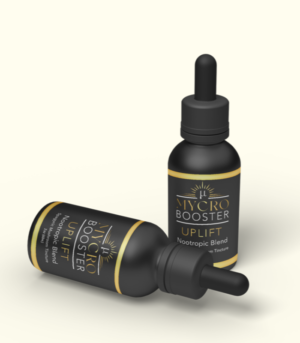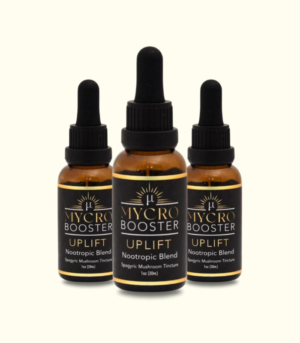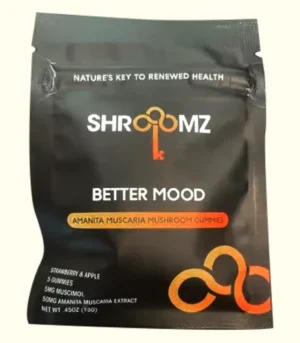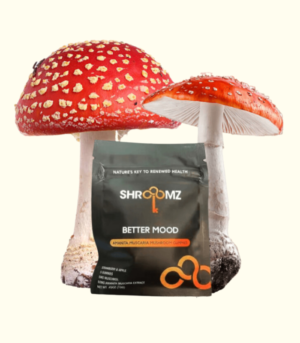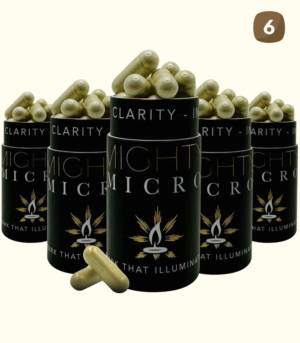As micro-dosing psilocybin, the active compound in magic mushrooms, becomes increasingly popular for its potential cognitive and psychological benefits, parents and educators may find themselves needing to navigate discussions and concerns surrounding this practice. This comprehensive guide aims to provide parents and educators with an understanding of micro-dosing psilocybin, its potential benefits and risks, and strategies for addressing the topic with adolescents.
What is Micro-Dosing?
Micro-dosing involves consuming a sub-perceptual amount of a psychoactive substance, such as psilocybin, to achieve subtle cognitive and emotional benefits without the typical hallucinogenic effects. Micro-dosing psilocybin typically involves ingesting approximately 1/10th to 1/20th of a recreational dose.
What Are the Potential Benefits of Micro-Dosing Psilocybin?
Research and anecdotal reports suggest that micro-dosing psilocybin may have various potential benefits, including:
- Enhanced creativity and problem-solving skills
- Improved focus and concentration
- Increased emotional intelligence and empathy
- Reduced anxiety and depression symptoms
- Greater sense of well-being and life satisfaction
It is important to note that research on micro-dosing is still in its infancy, and more studies are needed to fully understand its effects and establish its safety and efficacy.
What risks should parents and educators be aware of regarding micro-dosing psilocybin?
Parents and educators should be aware of several key risks associated with micro-dosing psilocybin. Understanding these risks can help them provide accurate information and guidance to adolescents:
1. Legal Risks
- Illegality: Psilocybin is classified as a Schedule I controlled substance in many places, meaning its use, possession, and distribution are illegal. Engaging in micro-dosing could lead to legal consequences, including fines or imprisonment.
- Criminal Records: Being caught with psilocybin could result in a criminal record, which might affect future opportunities, such as college admissions or employment.
2. Health Risks
- Unregulated Products: Psilocybin-containing products are often not regulated, leading to inconsistencies in potency and purity. This lack of standardization can increase the risk of adverse effects.
- Adverse Reactions: Some individuals may experience negative side effects, such as nausea, anxiety, paranoia, or even exacerbation of existing mental health conditions.
- Interactions with Medications: Psilocybin can interact with other medications or substances, potentially leading to harmful effects or diminished efficacy of prescribed treatments.
3. Psychological Risks
- Increased Anxiety: Micro-dosing may exacerbate anxiety or create a sense of unease in some individuals, especially if not done in a controlled or supportive environment.
- Potential for Hallucinations: Although micro-dosing typically involves sub-perceptual doses, there is still a risk of unexpected sensory alterations or hallucinations, which can be distressing.
- Pre-existing Conditions: Individuals with a personal or family history of mental health disorders, such as schizophrenia or bipolar disorder, may be at higher risk for adverse psychological effects.
4. Risk of Misuse
- Tolerance Development: Regular use of psilocybin, even in small doses, may lead to tolerance, potentially prompting individuals to increase their dose, which could lead to greater risks.
- Dependency: While not considered physically addictive, there is a risk of psychological dependency, where individuals might rely on micro-dosing for emotional or cognitive benefits.
5. Social and Educational Impact
- Academic Performance: The potential effects on cognitive function and focus could impact academic performance and overall educational outcomes.
- Social Relationships: Misuse or misunderstandings about micro-dosing can strain relationships with peers, family, and educators.
6. Ethical and Developmental Considerations
- Informed Consent: Adolescents may not fully understand the implications of micro-dosing, raising ethical concerns about informed consent and decision-making.
- Developmental Impact: The adolescent brain is still developing, and introducing psychoactive substances can potentially affect cognitive and emotional development.
Buy Magic Mushroom Online
What are the best strategies for guiding adolescents about the potential effects of micro-dosing?
Guiding adolescents about the potential effects of micro-dosing requires a thoughtful, informed approach. Here are some effective strategies for parents and educators:
1. Educate Yourself First
- Understand Micro-Dosing: Gain a comprehensive understanding of what micro-dosing involves, including its benefits, risks, and current research findings.
- Know the Laws: Familiarize yourself with the legal status of psilocybin and its implications in your area.
2. Foster Open Communication
- Create a Safe Space: Encourage open, non-judgmental discussions where adolescents feel comfortable sharing their thoughts and questions.
- Be Receptive: Listen actively to their concerns and experiences without immediate judgment or criticism.
3. Provide Accurate Information
- Share Evidence-Based Knowledge: Offer information based on credible sources and recent research, addressing both potential benefits and risks of micro-dosing.
- Discuss Myths vs. Facts: Clarify common misconceptions about micro-dosing and provide factual insights to counter misinformation.
4. Emphasize Informed Decision-Making
- Discuss Consequences: Ensure adolescents understand the legal, health, and psychological consequences of using psilocybin.
- Encourage Critical Thinking: Help them weigh the pros and cons, making informed choices rather than following peer pressure or curiosity.
5. Explore Alternative Options
- Suggest Healthy Alternatives: Recommend other methods for achieving personal growth, such as meditation, mindfulness, therapy, or engaging in creative pursuits.
- Promote Positive Activities: Encourage participation in activities that support mental well-being and personal development without the use of psychoactive substances.
6. Model Responsible Behavior
- Set an Example: Demonstrate responsible decision-making and healthy coping strategies in your own life.
- Encourage Role Models: Help adolescents identify and follow positive role models who promote healthy lifestyles and personal growth.
7. Monitor and Support
- Offer Guidance: Provide ongoing support and guidance as they navigate their choices and experiences.
- Check In Regularly: Regularly discuss their experiences and feelings, providing support and addressing any issues that arise.
Understanding micro-dosing psilocybin and its potential benefits and risks is crucial for parents and educators in addressing this practice with adolescents. By fostering open and honest discussions, providing accurate information, and promoting informed decision-making, parents and educators can play a vital role in guiding adolescents through the complexities of micro-dosing and its implications.

